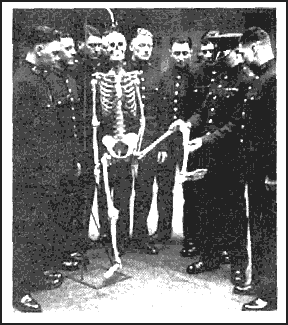And Other Stories
Daniel Orozco
(Faber & Faber)

Along with the instructions for use of the kitchenette, and the rest room, and the exact rule on breaks, we find out who is in love with whom, and who was and no longer is in love with whom. We also find out about who steals, and who "gorges himself at home on cold pizza and ice cream while watching adult videos on TV."
There is Amanda Pierce. Her husband "subjects her to an escalating array of humiliating sex games, to which Amanda Pierce reluctantly submits."
- She comes to work exhausted and freshly wounded each morning, wincing from the abrasions on her breasts, or the bruises on her abdomen, or the second-degree burns on the backs of her thighs.
"But," says our anonymous narrator, "we're not supposed to know any of this. Do not let on. If you let on, you may be let go."
And so we go through all the various misfits who inhabit the office, there at Anyoffice USA --- which includes Anika Bloom, who bleeds from her left palm and can predict the future; Barry Hacker, who steals food from the office refrigerator; Kevin Howard, a serial killer.
This arch writing works only if it is paced --- not too fast, not too slow. And I think it could only work in the confines of a short story. It needs the touch, and Orozco has that touch, so at the end of the seven pages of "Orientation," we have what S. J. Perelman calls a feuilleton --- a spare and comic bit, a droll commentary on contemporary corporate life and the secrets of the workplace, a system not unlike a dysfunctional family that sustains itself through the constant perpetuation of secrets.
Orozco's mastery is one of form. In "Hunger Tales III," we get to see exactly why a blind date doesn't work with a dialogue between people who have never met. It is --- in Orozco's hands --- spare, sharp, and to the point. All's well until the young man demands (he doesn't ask, he demands) to hear the name of his date's favorite kind of dog. He doesn't know (they've just met) that she can't stand dogs.
Despite a stunning meal ending in a "ball of hazlenut gelato inside a dark chocolate shell, drizzled with syrup of pomegranate and positioned within an immense cut glass goblet dolloped with crème fraîche and dotted with champagne grapes," the evening will be their first and last together. The form (again) works: spare dialogue, heavy emphasis on the dessert (which makes her intone "Oh. My. God.") and, most important, all that is left unsaid, which will leave them strangers.
In "Officers Weep" we get a riotous day with two police --- him [Shield #647] and her [Shield #325] ... as told in the language of a police report, with addresses, exact details, abbreviated language (no indefinite articles), all of which, at times, come to give the story the feel of a Zen paradox:
- 300 Block, Galleon Court. Tall Ships Estates. Criminal trespass and public disturbance. One-armed magazine salesman kicking doors and threatening residents. Scuffle ensues. Officers sit on suspect, call for backup, ponder a cop koan: How do you cuff a one-armed man?
The unlikely conclusion of these thirty brief reports, all told in Policespeak, comes when #647 and #325 find themselves parked at a patrol spot on the Coast Highway, and Orozco is briefly able to suspend the form, giving a pleasant surprise to the two (and to the reader),
- His hands reach for hers, their fingers clasp and enmesh, roil and swarm at the fourth finger of her left hand. Officers tug and pull, remove and park ring on dash. He reaches for her. He leans toward him; it is like falling. Officers fall.
"Afterwards they linger over their coffee. Wedding ring on dash glints in the shifting light, listless as a bottle cap or a shiny old button, something a bird might snatch up."
If we had to characterize Orozco, we might term him as a writer who can successfully romanticize the common bureaucrat. Those people who give us tickets and take our number in the building department and administer our driving test and draw our blood and take our oath in the courtroom and answer the telephone at Human Services are human: they have loves, nightmares, spates of loneliness, impossible parents or children, fear of dying.
We may be blinded by their uniforms or their uniform voices or their uniform jobs but they are not: they are part of the circle of the human race, and here in these seventeen stories they join us in the appallingly weird comedy and folly that we know of as living.